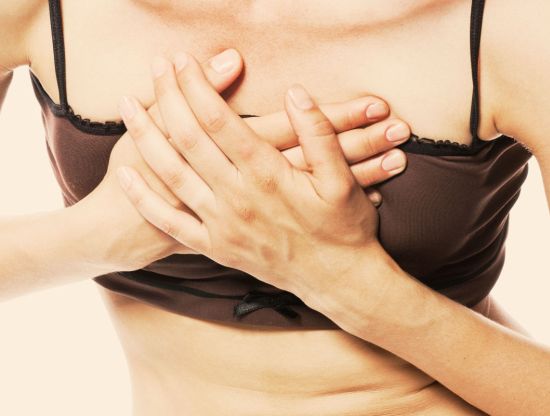Insomnia, hot flashes and night sweats are some of the common symptoms that you probably associate with menopause. However, many women with menopause complain about heart palpitations as well. Heart palpitations can be defined as pounding pulse or irregular heartbeat and this is something that you should be concerned about. It happens as the estrogen levels go down and this result in over stimulation of your heart. Reduction in the secretion of estrogen can lead to increase in heart rate and palpitations in some women.
Menopausal Heart Problems
Some of the problems that might arise due to the drop in the level of estrogen and lead to heart palpitations are:
High Blood Pressure
The blood vessels and heart becomes less elastic and stiff due to low estrogen levels and this might cause your blood pressure to rise. This can strain your heart and cause palpitations.
High Cholesterol
Lower level of estrogen can also affect your body fats and cholesterol levels negatively. HDL or good cholesterol levels tend to go down and LDL or bad cholesterol levels goes up. This increases the risk of fatal heart attacks and other heart diseases.
Diabetes
As you are going through menopause, your body might become resistant to insulin, the hormone that converts sugar into starch so that your cells can use it. This increases the chance of diabetes and this in turn increases the risk of stroke and other heart diseases.
Atrial Fibrillation
Abnormal heart rhythms might also be experienced by you during menopause. Hormonal changes can slow down your heart and lead to heart blocks and dizziness. It can also cause your heart to beat faster.
Weight Gain
Estrogen also affects the fat you store and how it is burned. Metabolism rate of your body slows down during menopause and this leads to weight gain. This can put stress on your heart and increase the chance of heart diseases.
Menopausal Symptoms Related to Palpitations not to be Ignored
A lot of changes take place inside your body during the time of your menopause and these changes can increase the risk of many heart diseases. Here are some symptoms that you should be on the lookout for:
- Palpitations should be assumed as natural flutters. Try and identify atrial fibrillation to prevent strokes.
- Shortness of breath could be signs of coronary artery disease or congestive heart failure and if you are experiencing the same, talk to your health practitioner today!
- Pressure in chest can be signs of heart diseases. Feeling of fullness, dull or squeezing pressure on the chest should not be ignored.
- Frequent headaches could be a sign of high blood pressure.
- Dizziness or lightheadedness can be due to diabetes or heart failure.
- Ache in your jaw can be a sign of weak and unhealthy heart
- Feet swelling due to accumulation of fluids can be due to congestive heart failure
- If you face difficulty while laying flat, meet your health provider without delay
Make sure that you eat a healthy diet and exercise to prevent heart diseases after menopause.







